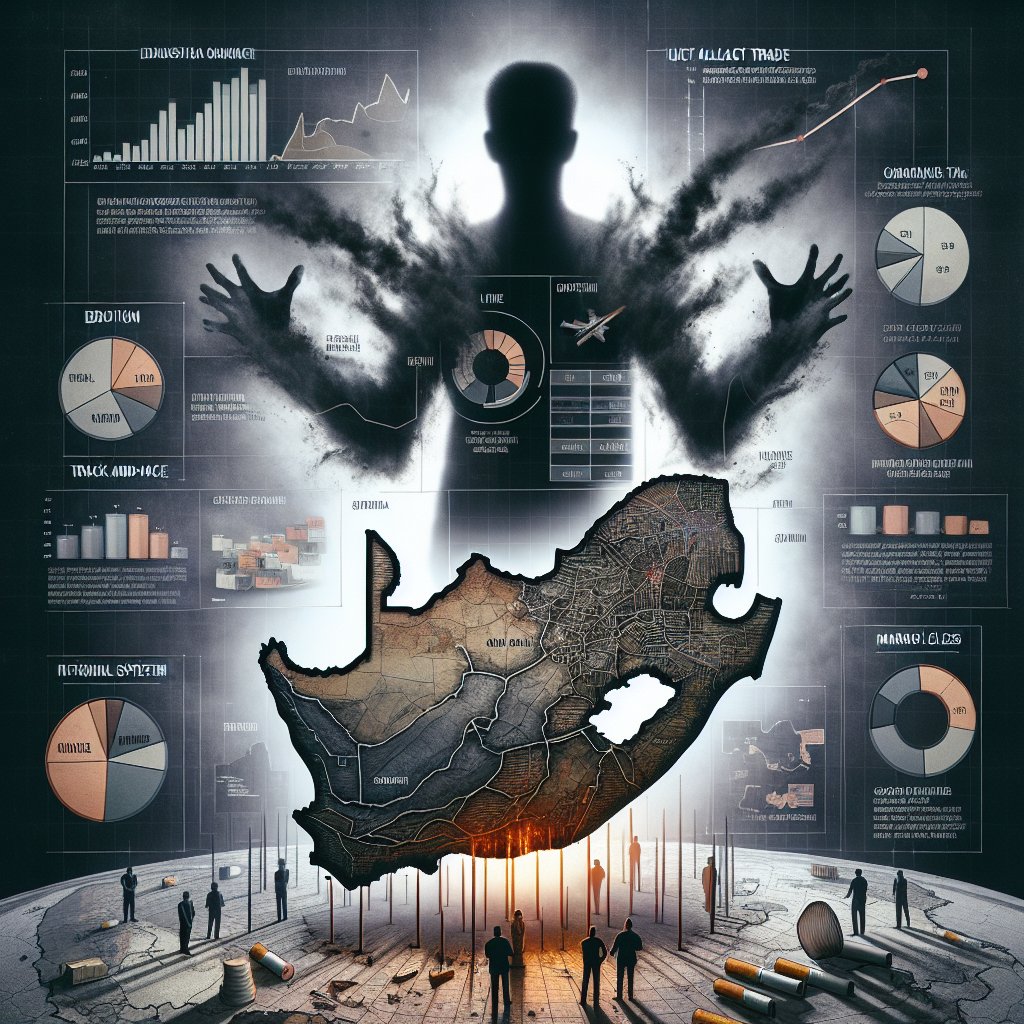Image created by AI
The Financial Smoke Screen: Illicit Cigarette Trade's Toll on South Africa's Economy
South Africa is grappling with a pervasive challenge within its borders; the illicit cigarette trade. This shadow economy does not just undermine public health measures but severely bleeds the country of its treasured financial resources. A staggering 58% of the cigarette market in 2022 was controlled by illegal trade, prompting concerns over the efficacy of regulation and law enforcement measures.
Recently released figures by the Treasury underscore the scale of the problem. In 2023, illicit trade has stayed well above the 60% threshold, indicating a crisis that South Africa must address head-on. The numbers speak volumes: R14.5 billion in potential excise tax and a further R3.3 billion in VAT was forfeited in 2022 alone, cumulatively adding over 1% to the total revenue that could have been secured by the South African Revenue Service (SARS).
These ramifications are the result of an escalating pattern that saw the roots of the illicit cigarette market bloom from a modest 5% in 2009 to a 40% share in 2019. It spiked remarkably during the tobacco sales ban in 2020, skyrocketing the illegal market to a 58-60% presence. This alone has cost the country an estimated R18.9 billion in revenue, considering a constant price context from 2019.
The long-term fiscal damage stretches from 2002, amassing an estimated total loss of R119 billion in excise and VAT revenue. This continuous hemorrhaging of financial resources over the years has left a significant dent in the country's budget, which ideally should have been directed towards vital public services like education, healthcare, and infrastructure.
The socioeconomic impact is further compounded by the public health crisis. Illicit cigarettes, due to their reduced pricing, make smoking cessation a challenging goal for many. They also serve as a gateway for youth initiation into smoking, perpetuating the cycle of addiction and its associated healthcare costs.
This financial smog is part of a bigger problem involving organized crime and corruption, gnawing at the very edifice that upholds state structures.
Although there was a glimmer of effort by SARS to quell this tide with tender requests for a track-and-trace system initiative in 2019, the cancellation of said tender in May 2020, and South Africa's delay in ratifying the Protocol to Eliminate Illicit Trade in Tobacco Products, represents setbacks in the battle against illegal tobacco.
An efficient and secure supply chain from cultivation to consumer is fundamental in stemming the financial hemorrhage. Without a concerted strategy incorporating stricter licensing for tobacco producers and a robust tracking system, South Africa continues on a precarious path, surrendering its revenue and public health to the throes of the underground market.










